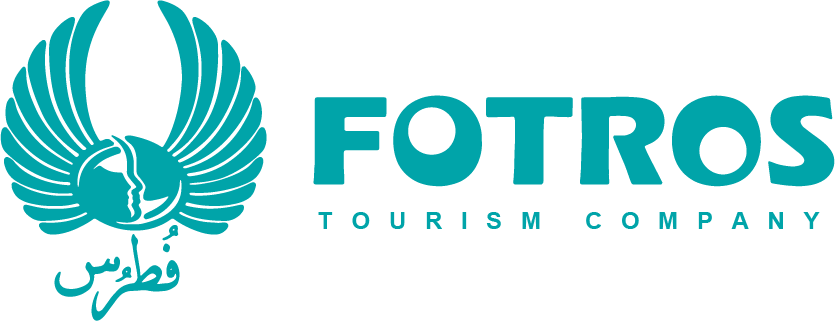
Medical Surgeries
Tumor Resection


Tumor resection refers to the surgical removal of a tumor or a part of a tumor from the body. This procedure is commonly performed in the treatment of various types of cancers. The goal of tumor resection is to eliminate or reduce the presence of cancerous cells, thereby improving the patient's chances of recovery.
The extent of tumor resection can vary depending on factors such as the type, size, location, and stage of the tumor, as well as the overall health of the patient. In some cases, surgeons may aim to remove the entire tumor, while in other situations, partial resection may be more appropriate.
Tumor resection is often combined with other cancer treatments, such as radiation therapy, chemotherapy, or immunotherapy, to achieve a more comprehensive approach to cancer management. The decision to perform tumor resection and the specific surgical techniques used depend on the individual characteristics of the patient and the nature of the cancer.
It's important to note that tumor resection is just one aspect of cancer treatment, and the overall management plan may involve a combination of different therapeutic modalities to address the specific needs of the patient. Additionally, advancements in medical technology and surgical techniques continue to contribute to improvements in the precision and effectiveness of tumor resection procedures.
some important points that are generally applicable:
Preoperative Evaluation:
• Thorough assessment of the patient's overall health, including medical history and any comorbid conditions.
• Diagnostic imaging, such as CT scans, MRIs, or PET scans, to determine the size, location, and extent of the tumor.
Surgical Planning:
• Collaborative decision-making involving surgeons, oncologists, and other relevant specialists.
• Planning the surgical approach based on the tumor type, location, and size.
Patient Preparation:
• Adequate preoperative counseling for the patient regarding the procedure, potential risks, and expected outcomes.
• Preoperative tests and optimization of the patient's health to reduce surgical risks.
Intraoperative Considerations:
• Use of appropriate anesthesia to ensure patient comfort and safety during the procedure.
• Minimization of damage to surrounding healthy tissues while removing the tumor.
• Adequate exposure and visualization of the surgical field.




Pathological Examination:
• Detailed examination of the excised tumor by a pathologist to determine the tumor type, grade, and other relevant characteristics.
Pathological Examination:
• Detailed examination of the excised tumor by a pathologist to determine the tumor type, grade, and other relevant characteristics.
Hemostasis (Control of Bleeding):
• Effective control of bleeding during the procedure to minimize blood loss.
• Use of surgical techniques, cautery, or other hemostatic measures.
Tumor Margin Assessment:
• Ensuring that the entire tumor is removed, along with a margin of normal tissue to reduce the risk of recurrence.
• Intraoperative frozen section analysis may be performed to assess the margins during surgery.
Lymph Node Evaluation:
• For certain types of cancer, evaluation of nearby lymph nodes to determine if the cancer has spread.
• Sentinel lymph node biopsy may be performed in some cases.
Postoperative Care:
• Monitoring the patient closely in the immediate postoperative period for any complications.
• Adequate pain management and support for the patient's recovery.
Follow-up and Surveillance:
• Establishing a follow-up plan to monitor the patient for any signs of recurrence or complications.
• Collaboration with oncologists for postoperative adjuvant therapies, such as chemotherapy or radiation.




General Considerations ın Tumor Resection
It seems like you're asking about tumor resection after complications. Tumor resection is a surgical procedure where a tumor is removed from the body. Complications can arise during or after surgery, and managing them is an essential part of the overall treatment process. Complications may include bleeding, infection, damage to surrounding structures, or other issues.
The specific approach to managing complications after tumor resection can vary based on the type of complication and the individual patient's condition. Here are some general considerations:
Monitoring and Observation:
• Patients are typically closely monitored after surgery to identify and address any complications promptly.
• Vital signs, such as heart rate, blood pressure, and respiratory rate, may be closely monitored.
Medical Treatment:
• Antibiotics may be prescribed to prevent or treat infections.
• Pain management is crucial to ensure the patient's comfort.
Additional Procedures:
• In some cases, additional surgical procedures may be necessary to address complications, such as drainage of accumulated fluids or re-exploration of the surgical site.
Supportive Care:
• Patients may need supportive care to help with recovery, such as physical therapy or rehabilitation services.
Communication:
• Clear communication between the patient, their family, and the healthcare team is essential. This includes discussing any concerns or symptoms promptly.
Follow-up Imaging and Testing:
• Follow-up imaging and testing may be conducted to ensure that the tumor has been completely removed and to monitor for any signs of recurrence.


Why Iran
It seems there might be a misunderstanding in your question. Iran, like many other countries, has medical facilities and skilled healthcare professionals who can perform tumor resection surgeries. The suitability for tumor resection depends on the specific case and the availability of medical resources.
If you are asking why a particular hospital or medical center in Iran is suitable for tumor resection, it could be due to several factors:
Medical Expertise: Some hospitals or medical centers in Iran may have highly skilled and experienced surgeons specializing in tumor resection.
Technological Infrastructure: Advanced medical equipment and technology play a crucial role in successful tumor resection surgeries. If a hospital is well-equipped with the latest medical technology, it can enhance the precision and effectiveness of the surgery.
Research and Innovation: Institutions that actively engage in medical research and innovation may be at the forefront of developing and implementing new techniques and approaches to tumor resection.
Collaboration and Multidisciplinary Care: Successful tumor treatment often involves collaboration between different medical specialties. Hospitals that facilitate multidisciplinary care, where surgeons, oncologists, radiologists, and other specialists work together, can provide comprehensive and effective treatment.
Postoperative Care and Rehabilitation: The quality of postoperative care and rehabilitation services is essential for the overall success of tumor resection. Hospitals that offer comprehensive care plans for patients during the recovery process contribute to better outcomes.


Our services include:
![]() our online services include: quotes and consultation
our online services include: quotes and consultation
![]() Planning the highest word-level medical trips and quality hospitals and medical centers according to the patient's request and budget.
Planning the highest word-level medical trips and quality hospitals and medical centers according to the patient's request and budget.
![]() Appointing treatments by the most skilled and experienced doctors.
Appointing treatments by the most skilled and experienced doctors.
![]() Airport pick-up/drop off, check-ups, accompanying translator, book hotel (for patients and their families)
Airport pick-up/drop off, check-ups, accompanying translator, book hotel (for patients and their families)
![]() Pre-hospitalization / post-hospitalization care services
Pre-hospitalization / post-hospitalization care services
All-Inclusive Medical Travel Packages
based on your budget, our team will assist you in choosing the best hotels, doctors, and medical centers. Our packages include:
 Airport Pickup Services
Airport Pickup Services Airport Dropoff services
Airport Dropoff services Hotel
Hotel Ticket
Ticket visa
visa translator
translator Transfer
Transfer SIM Card
SIM Card Sightseeing
Sightseeing


 why Iran
why Iran
Patients may choose to have abdominoplasty (commonly known as a tummy tuck) in Iran for a variety of reasons
Cost, Quality of Care, Privacy and Discretion, Combined Tourism, no Waiting Times
![]()
Fotros is an Iranian health tourism company with a professional team consisting of a support team and word-level doctors in medical and cosmetic surgeries like Neurosurgery, Rhinoplasty, Breast cosmetic surgeries, Liposuction, tummy tuck, etc.










 why Iran
why Iran